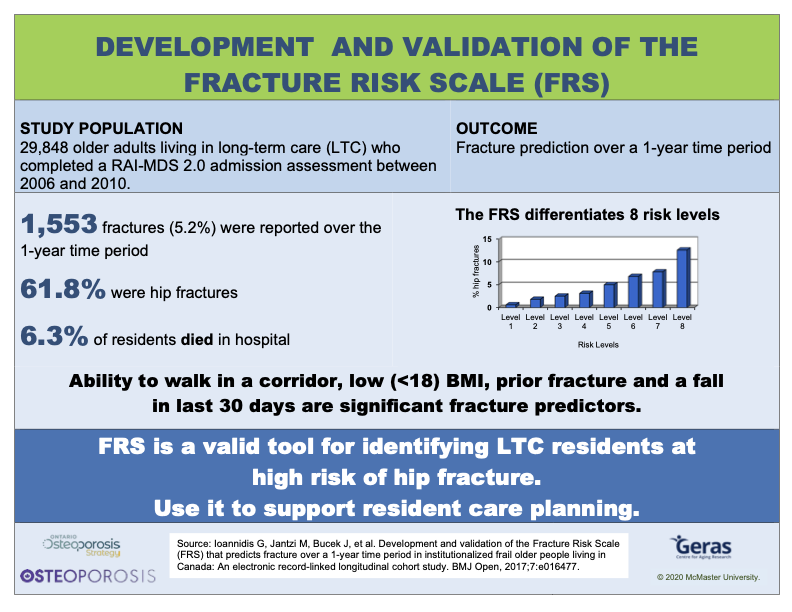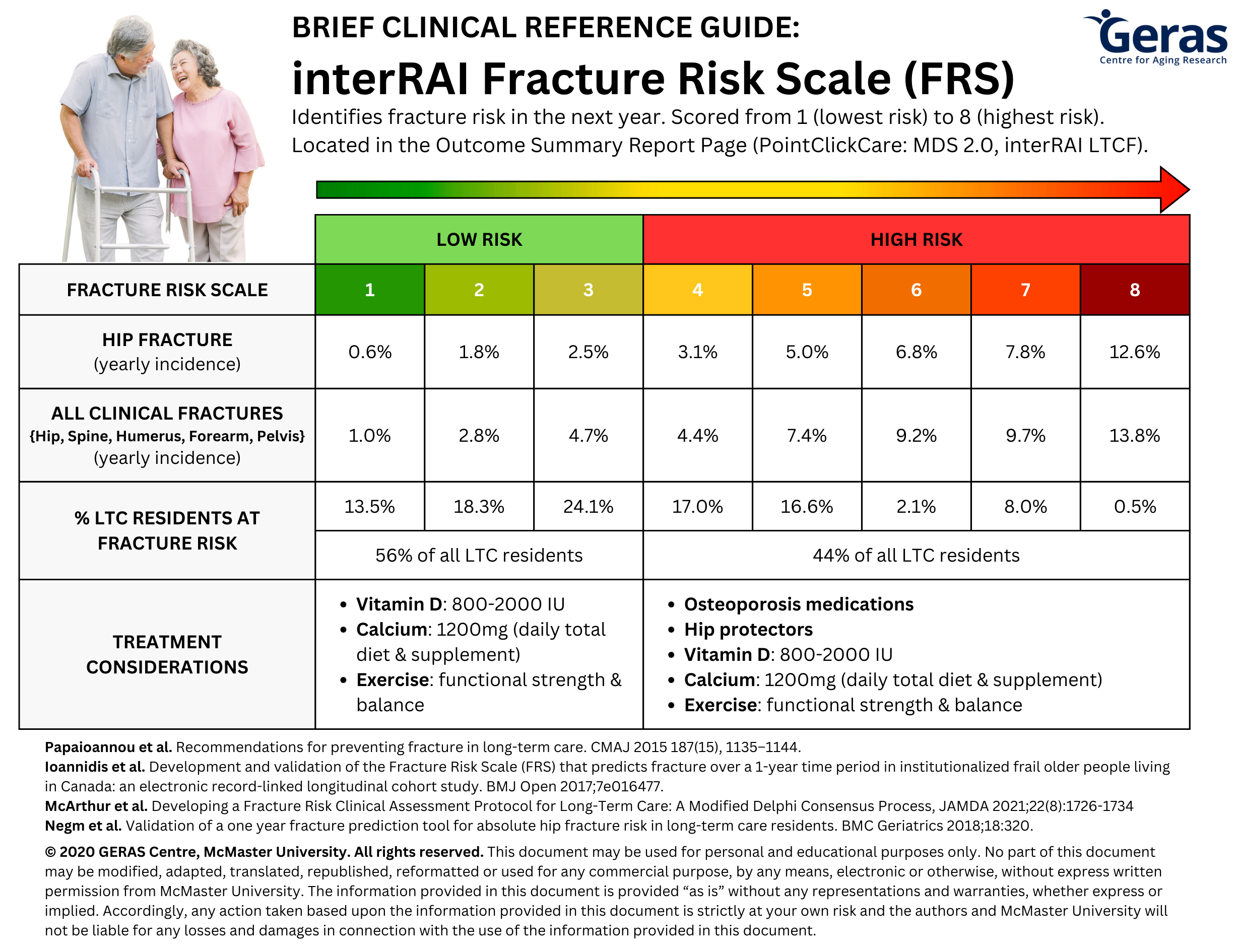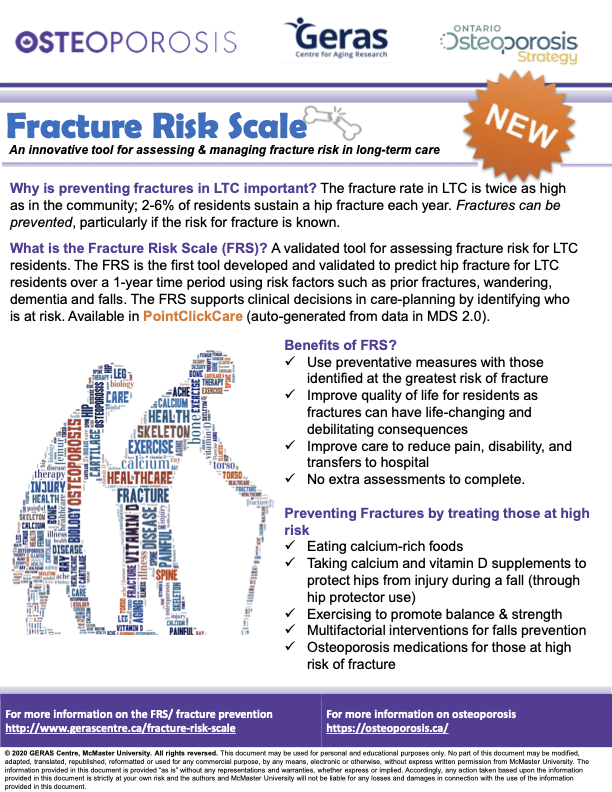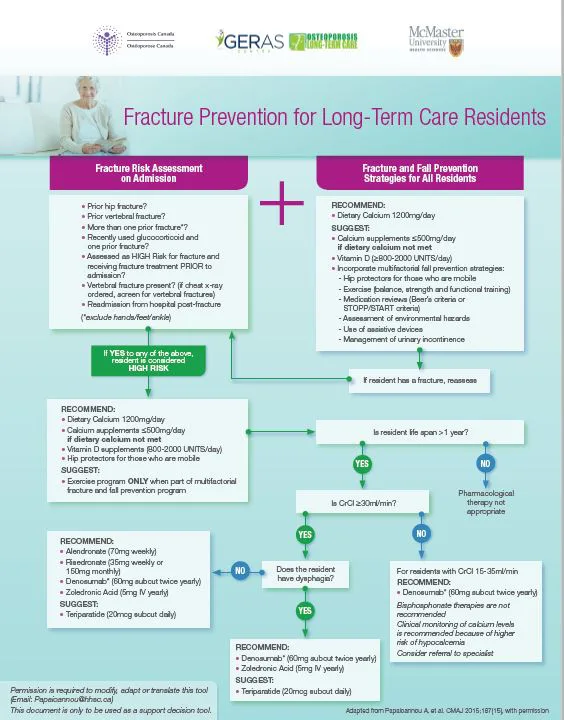Identifying 1 year Fracture Risk in Long-Term Care
The Fracture Risk Scale (FRS) is a validated tool for predicting fractures for LTC residents over a 1-year time period using risk factors that are directly relevant for LTC residents such as prior fractures, dementia, and falls. The FRS is embedded with the RAI-MDS 2.0 (Resident Assessment Instrument Minimum Data Set) and Long-Term Care Facilities Assessment System (LTCF), automatically generating a fracture risk score without the need for additional assessments.
What is the FRS?
- The FRS is a validated tool for assessing fracture risk for LTC residents.
- The FRS is the first tool of its kind to predict fractures for LTC residents over a 1-year time period using risk factors such as prior fractures, wandering, dementia and falls.
- The FRS supports clinical decisions in care-planning by identifying who is at risk.
Why is the FRS important?
- Preventive measures can be used with LTC residents identified by the FRS as being at high risk so that future fractures can be prevented.
- Fracture prevention can improve quality of life for residents as fractures can have life-changing and debilitating consequences.
- Pain, disability, and transfers to hospital can be avoided with fracture prevention.
Where is the FRS?
- The FRS is embedded with the RAI-MDS 2.0 (Resident Assessment Instrument Minimum Data Set) and Long-Term Care Facilities Assessment System (LTCF) as provided by PointClickCare® – the score itself is located along with the scores of other RAI-MDS/ LTCF scales.
- If the FRS is not available within the existing assessment system, the risk score can be calculated manually using our FRS Manual Calculation tool.
Who developed the FRS?
- The FRS was developed by researchers at the Geras Centre for Aging Research, led by Dr. Alexandra Papaioannou, a Geriatrician with Hamilton Health Sciences and Professor, Department of Medicine at McMaster University, and Dr. George Ioannidis, Deputy Director, Geras and Associate Professor in the Department of Medicine, McMaster University.
FRS Video Series
Team Approach to Preventing Fractures in Long-Term Care
Dive into our video series on the Fracture Risk Scale (FRS), featuring Dr. Sid Feldman and a team of allied health professionals. Through real-life case studies, discover their collaborative approach to preventing fractures in Long-Term Care (LTC) settings. Through these videos, get practical insights, strategies, and hands-on tips for effective fracture prevention in LTC. Finally, learn how to locate the Fracture Risk Scale within RAI-MDS in PointClickCare.
This video series is proudly supported by the CIHR Institute of Aging Betty Havens Prize for Knowledge Mobilization in Aging awarded to Dr. Alexandra Papaioannou.



Care Planning
Managing Fracture Risk
Hip fractures in the frail elderly can cause long-term pain, loss of mobility, reduced quality of life, and can contribute to mortality. Fractures can be prevented!

